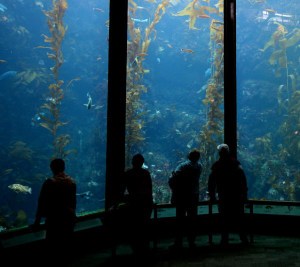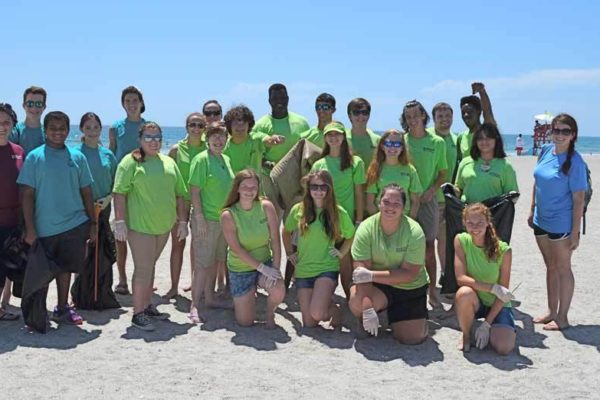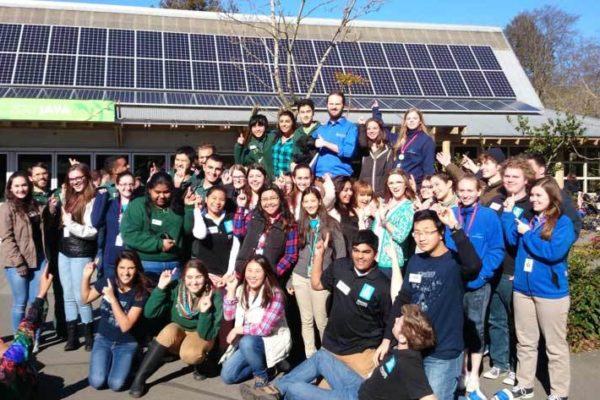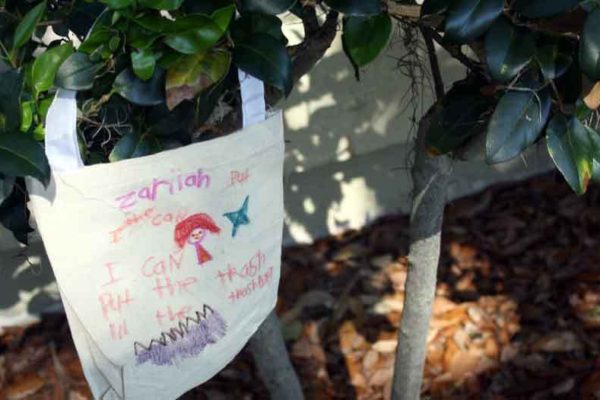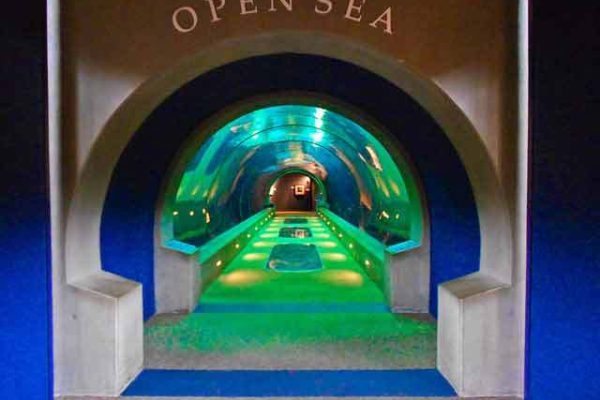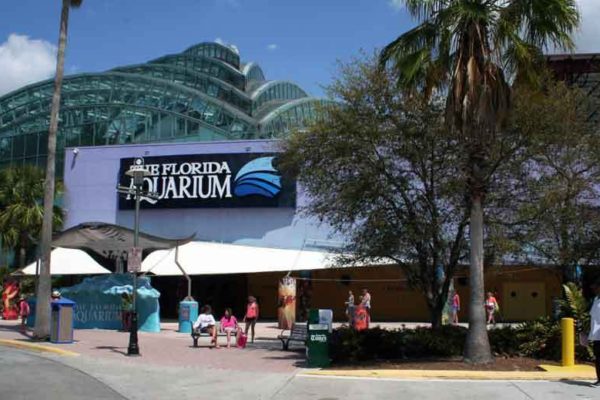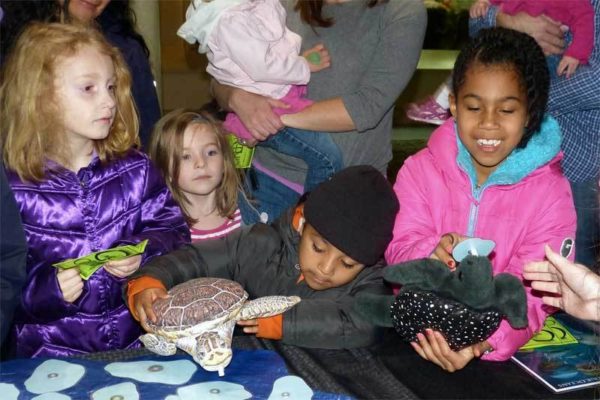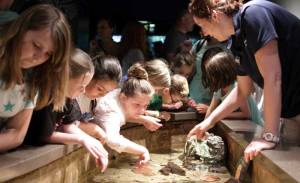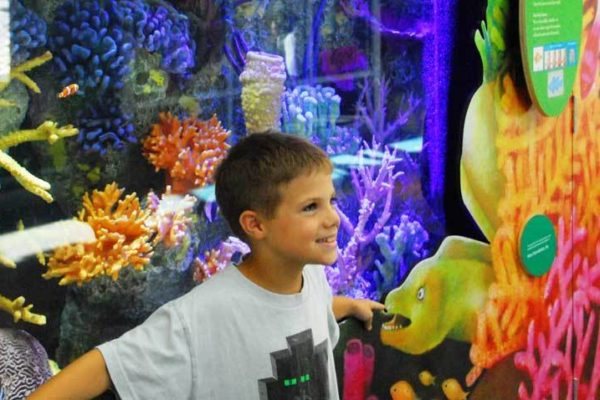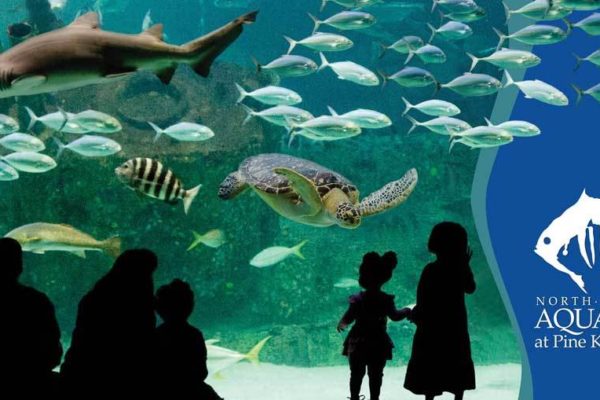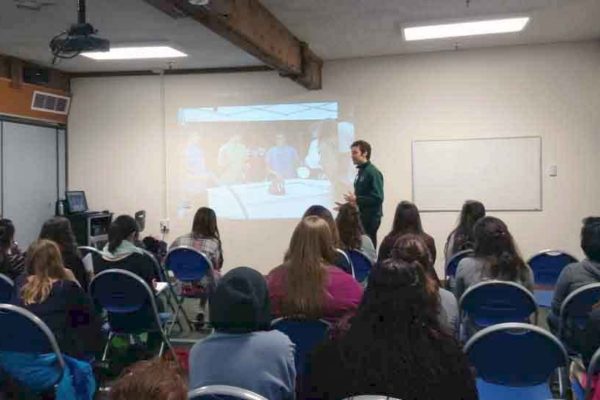The Innovative Solutions Grants+ Program (active 2010-2015)
Leading the charge for conservation impact in the Zoo, Aquarium, and Museums (ZAM) community
Please note: The funding from NOAA for this innovative and effective program is no longer available due to congressional budget cuts for environmental and ocean literacy. We gained strong proof of concept from working with aquarium and zoo awardees and look forward to applying this type of program in some capacity in the future as it was exceedingly cost effective.
The Grants+ Program evolved from The Ocean Project’s efforts to help our partner organizations (i.e., zoos, aquariums, and museums or ZAMs) more effectively advance conservation action by engaging minorities and youth; it allowed us to invest in community innovators by providing not only financial resources, but also free strategic communications services and evaluation help for stronger conservation impact. Thanks to funding from the National Oceanic and Atmospheric Administration (NOAA), we awarded approximately $400,000 in grants of up to $30,000 to ZAMs that also came with pro bono strategic communications coaching and technical expertise to catalyze peer-to-peer sharing and learning. While these grants were only available to US-based and AZA-accredited ZAMs–due to stipulations from NOAA–the lessons learned continue to benefit the ZAM community as a whole, both in the U.S. and throughout the world. In addition to the links below, you can read about more recent examples on our blog.
Why ZAMs?
ZAMs are increasingly exploring opportunities to advance conservation by encouraging their guests to join them in taking action, including behavior change and improving policy. The Ocean Project has supported our partner ZAMs since 1997 with public opinion and market research, and other tools and resources aimed at understanding how we can effectively engage visitors, the public, and policymakers for conservation outcomes.
Public opinion research has shown that ZAM visitors' interest in environmental issues tends to spike during a visit. Moreover, it tells us that visitors not only trust ZAMs, but also expect and appreciate information from them about ways to help protect the animals and the environment. When considering the 200 million visitors to ZAMs each year in the United States, alone, there is a huge potential for conservation impact!
Please see our latest collaborative work for effective visitor engagement, including a focus on conservation policy for the last several years.
Updates from past grantees
-
ISG+ Update: Teens at Riverbanks Zoo and Garden get their hands dirty
Posted on August 13, 2015Continue readingThis guest post, by Director of Education Elizabeth Clemens and Coordinator of ZooTeens and Scout Programs Syndi Castelluccio, from Riverbanks Zoo and Garden is the second in a 3-part series on their Innovative Solutions Grants+ project, which investigates how engaging with teens and receiving incentives can impact zoo guest behavior. The Adventure Continues As reported in […]
-
ISG+ Update: Seattle youth CAN engage their peers on transportation
Posted on August 10, 2015Continue readingThis guest post by Eli Weiss of Woodland Park Zoo is the second in a 3-part series on their Innovative Solutions Grants+ project, exploring how teens in the Seattle area can empower each other and their peers for action on climate change. Woodland Park Zoo, along with our partners the Seattle Aquarium and Pacific Science […]
-
ISG+ Update: A Collaborative Approach to Community Engagement at the Florida Aquarium
Posted on August 3, 2015Continue readingThis guest post, by VP of Education Debbi Stone at Florida Aquarium, is the second in a 3-part series on their Innovative Solutions Grants+ project. The Aquarium’s project asks “Can we gain valuable insights about how to engage an underrepresented audience by working together to design the approach?” Click here to read the previous post […]
-
ISG+ Final Report: What we learned at the Oregon Coast Aquarium
Posted on March 30, 2015Continue readingThis guest post by Teresa Mealy of Oregon Coast Aquarium is the final update on their Innovative Solutions Grants+ project, which put teens in the driver’s seat of a peer-targeted conservation campaign! Thank you and congrats to Teresa, Kerry Carlin-Morgan, and everyone at the Aquarium for your great work. Letting youth lead the way The […]
-
ISG+ New Project: Florida Aquarium investigates a co-designed ‘ask’ for engagement
Posted on March 18, 2015Continue readingThis guest post, by VP of Education Debbi Stone at Florida Aquarium is the first in a 3-part series on their Innovative Solutions Grants+ project. The Aquarium’s project asks “Can we gain valuable insights about how to engage an underrepresented audience by working together to design the approach?” The Ask As a mission-based institution committed […]
-
ISG+ New Project: Teens at Riverbanks Zoo and Garden take action “all the way to the ocean”
Posted on March 10, 2015Continue readingThis guest post, by Director of Education Elizabeth Clemens and Coordinator of ZooTeens and Scout Programs Syndi Castelluccio, from Riverbanks Zoo and Garden is the first in a 3-part series on their Innovative Solutions Grants+ project, which investigates how engaging with teens and receiving incentives can impact zoo guest behavior. Teen S.O.S. The Riverbanks Zoo and […]
-
ISG+ Final Report: What we learned at the New England Aquarium
Posted on March 5, 2015Continue readingThis guest post by Heather Deschenes of New England Aquarium, the final in a 3-part series on the aquarium’s Innovative Solutions Grants+ project, is a look at what the aquarium learned from their efforts. Thank you to Heather and everyone who helped at the aquarium for your hard work! The Ocean Project’s Innovative Solutions grant enabled […]
-
ISG+ New Project: Philadelphia Zoo asks, “Can an exhibit change visitor behavior at home?”
Posted on February 3, 2015Continue readingThis guest post by Wei Ying Wong of Philadelphia Zoo is the first in a 3-part series on Philadelphia Zoo’s Innovative Solutions Grants+ project. They’re exploring a new way of evaluating long-term conservation behavior change, specifically home energy use, in visitors to the zoo’s KidZooU exhibit. As a conservation institution, the Philadelphia Zoo is committed […]
-
ISG+ Final Report: What we learned at the NC Aquariums
Posted on January 28, 2015Continue readingThis guest post by Windy Arey-Kent of NC Aquarium at Pine Knoll Shores is the final in a 3-part series on NC Aquariums’ Innovative Solutions Grants+ project, aimed at testing different approaches to engaging guests for conservation action at aquariums. This blog post is a look at what NC Aquariums learned as a result of […]
-
ISG+ New Project: Climate change action? Seattle youth CAN!
Posted on January 6, 2015Continue readingThis guest post by Eli Weiss of Woodland Park Zoo is the first in a 3-part series on their Innovative Solutions Grants+ project, exploring how teens in the Seattle area can empower each other and their peers for action on climate change. The Path Forward At the Woodland Park Zoo, we have been working for […]

